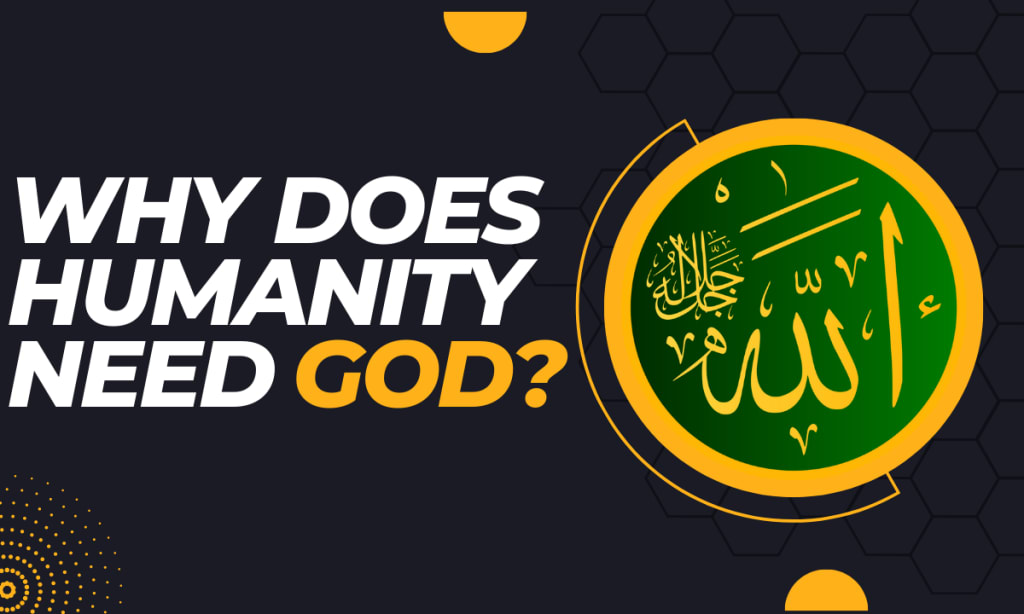
The question of why humanity needs God has intrigued philosophers, theologians, and individuals alike for centuries. In a world filled with scientific advancements and technological progress, some may argue that the concept of God is obsolete. However, the longing for a higher power and the belief in the existence of God continue to persist in the hearts and minds of many. In this article, we will explore the reasons why humanity needs God and how this need fulfills fundamental aspects of human existence.
The Search for Meaning and Purpose
One of the primary reasons why humanity needs God is the innate desire to find meaning and purpose in life. Humans seek answers to profound questions like "Why am I here?" and "What is the purpose of my existence?" The belief in God provides a framework through which individuals can understand their place in the world and find purpose in serving a higher power.
Comfort in Times of Uncertainty
Throughout life, humans face various challenges and uncertainties. In times of hardship, the belief in God offers solace and comfort. The assurance of a divine presence provides a source of strength and hope, reminding individuals that they are not alone in their struggles. The belief in a higher power can provide comfort during difficult times, offering a sense of security and guidance.
Moral Guidance and Ethics
God plays a crucial role in providing moral guidance and establishing ethical frameworks. The belief in a higher power often coincides with the acceptance of a moral code that governs human behavior. The concept of God provides a basis for distinguishing between right and wrong, encouraging individuals to act in accordance with ethical principles and promoting harmonious coexistence.
Addressing Existential Questions
Existential questions about the nature of reality, the origins of the universe, and the purpose of human existence often arise within human consciousness. God serves as a potential answer to these profound inquiries, offering a metaphysical explanation for the complexities of life. Believing in God provides a framework to explore these existential questions and find meaning within them.
Hope and Resilience
Humanity needs God to foster hope and resilience in the face of adversity. The belief in a higher power instills optimism, reminding individuals that there is a greater purpose beyond immediate challenges. The hope derived from faith in God encourages perseverance, resilience, and the belief that difficult circumstances can be overcome.
Connection and Community
Belief in God often leads to a sense of connection and community. Humans are social beings, and the communal aspect of religious gatherings, such as prayers, worship, and religious ceremonies, provides opportunities for individuals to connect with others who share similar beliefs. The sense of belonging and support within religious communities strengthens social bonds and contributes to overall well-being.
Transcendence and Spiritual Fulfillment
The need for transcendence and spiritual fulfillment is an essential aspect of human nature. Believing in God provides a pathway to transcend the material world and connect with something greater than oneself. The pursuit of spiritual growth and the development of a deep connection with the divine bring about a sense of fulfillment and purpose in life.
Dealing with Suffering and Tragedy
Suffering and tragedy are inevitable parts of the human experience. The belief in God offers solace and a framework for understanding and coping with these challenging circumstances. The concept of a compassionate and loving God provides comfort in times of pain, offering the possibility of finding meaning in suffering and the hope of eventual healing.
Seeking Forgiveness and Redemption
Humans are inherently flawed and make mistakes throughout their lives. The belief in God provides a source of forgiveness and redemption. Acknowledging one's shortcomings and seeking forgiveness from a higher power allows individuals to find solace and strive for personal growth. The concept of God's mercy and forgiveness offers a path to self-improvement and moral redemption.
Exploring the Mysteries of the Universe
The mysteries of the universe captivate human curiosity. The belief in God allows individuals to explore these mysteries with a sense of wonder and awe. It provides a framework to contemplate the grandeur of creation, encouraging humans to marvel at the intricacies of the natural world and seek knowledge and understanding.
Acknowledging Human Limitations
Humanity's need for God also stems from the recognition of human limitations. Despite significant scientific advancements, humans remain limited in their understanding of the universe and their ability to control all aspects of life. Believing in God acknowledges the humility of human existence, reminding individuals of their place in the vastness of creation.
Finding Inner Peace and Contentment
Inner peace and contentment are vital for overall well-being. The belief in God offers a pathway to find inner peace, as it fosters a sense of trust in a higher power and acceptance of life's circumstances. Through faith, individuals can find solace, experience tranquility, and develop a sense of contentment that transcends external circumstances.
Expressing Gratitude and Appreciation
Gratitude and appreciation are fundamental aspects of the human experience. Believing in God provides a framework for expressing gratitude for the blessings and beauty of life. It encourages individuals to recognize the abundance around them and cultivate a sense of thankfulness, which enhances overall well-being and promotes a positive outlook.
Embracing Transcendent Love
The need for love and connection is deeply ingrained in human nature. Believing in God allows individuals to embrace a transcendent love that surpasses human relationships. The concept of God's unconditional love and compassion provides a source of emotional and spiritual fulfillment, fostering a deeper sense of love and compassion towards others.
Nurturing the Human Spirit
Finally, humanity needs God to nurture the human spirit. The belief in a higher power provides a framework for personal growth, self-reflection, and the cultivation of virtues. It encourages individuals to strive for moral excellence, to develop compassion and empathy, and to lead a purpose-driven life.
Conclusion
The question of why humanity needs God is complex and multifaceted. The belief in a higher power fulfills fundamental aspects of human existence, including the search for meaning and purpose, comfort in times of uncertainty, moral guidance, and ethical frameworks. Believing in God provides hope, resilience, and a sense of connection and community. It addresses existential questions, nurtures the human spirit, and allows individuals to find inner peace, gratitude, and transcendence. Ultimately, the need for God arises from humanity's innate longing for a deeper understanding of the world and its place within it.
About the Creator
Writy
Hi, this is Bilal Ahmed, a part time blogger from Medina Munwra. I am a Tech Enthusiast. Though not a tech guy, yet blogging is my passion and I love to write on varied aspects of Tech and Non-Tech affairs. Having flair in writing,






Comments
There are no comments for this story
Be the first to respond and start the conversation.